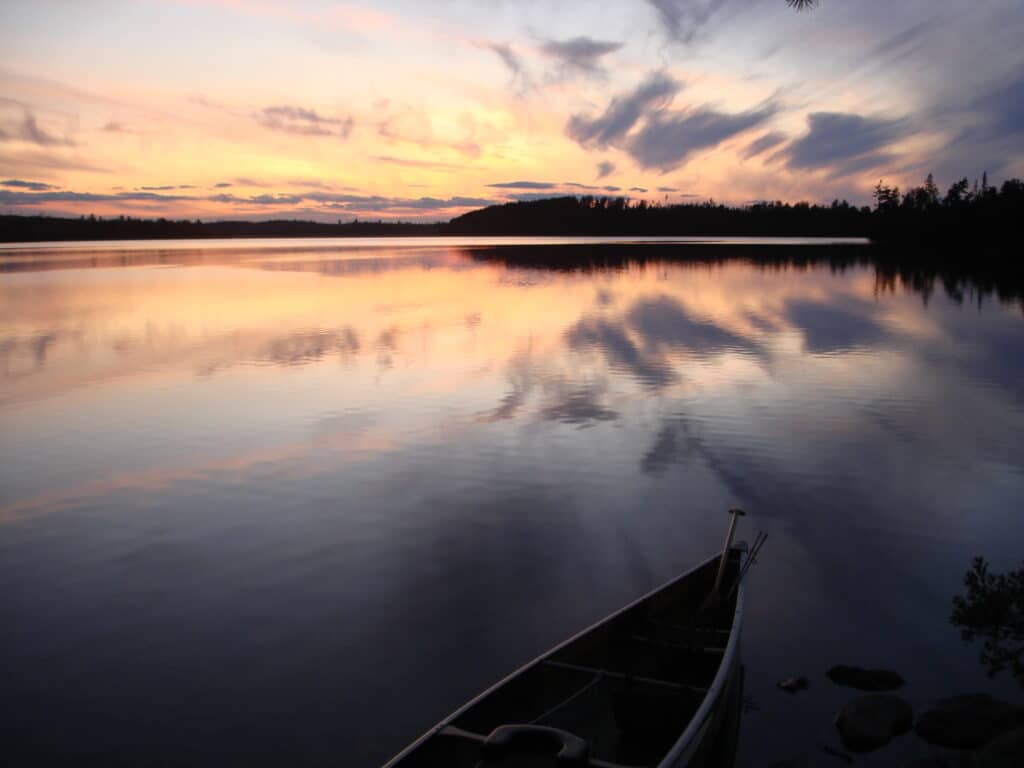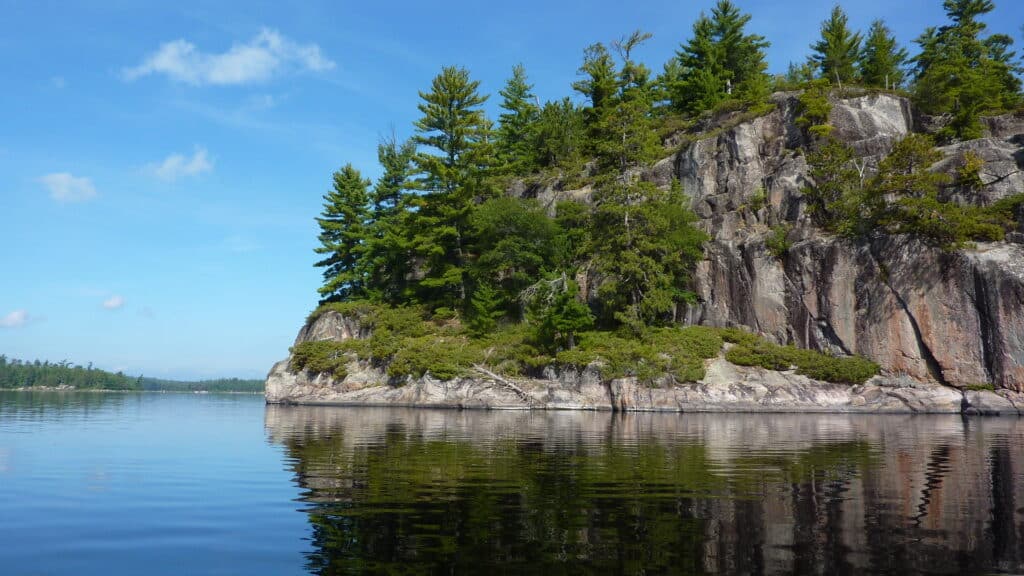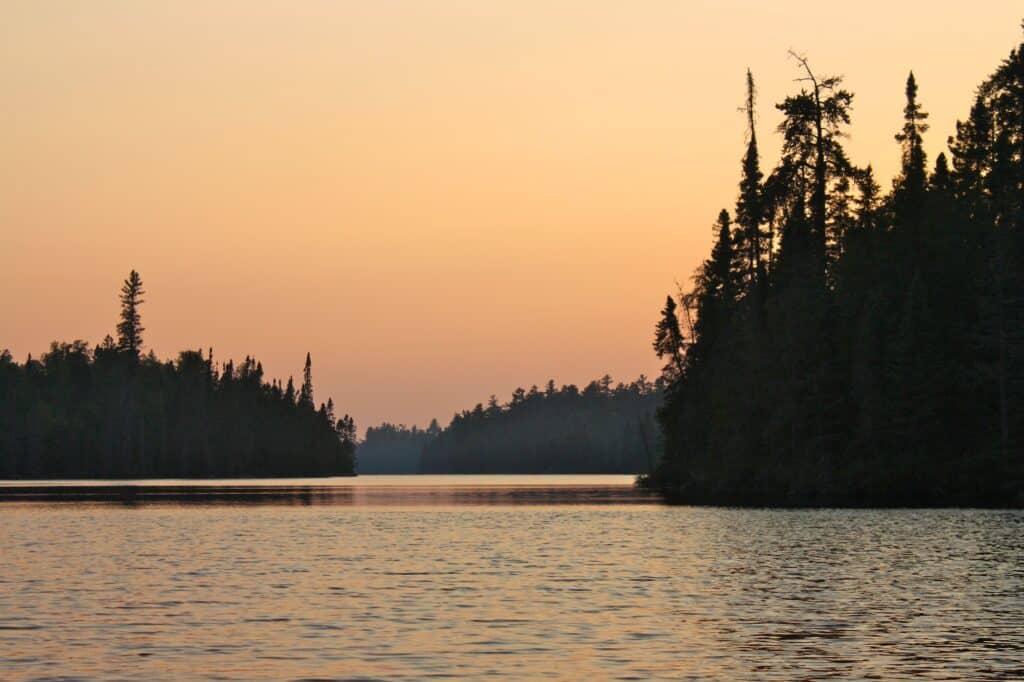
The natural silence of the Boundary Waters Canoe Area Wilderness has been recognized by a group that promotes such places around the world. Based on measurements of noise levels that were collected in the wilderness area over the past two years, the group Quiet Parks International confirmed what many visitors to canoe country know: the only sounds to be heard are usually natural noises like birds and wind.
Places unaffected by human-made noise are increasingly rare in the modern world. Quiet Parks International points to numerous benefits of experiencing natural soundscapes.
“The reality is that there are very few quiet natural places left on planet earth. The Boundary Waters is special and inspiring for many reasons, and its soundscape is certainly one of them,” said Matt Mikkelsen, Executive Director of Quiet Parks International. “The Boundary Waters is one of the only places left in the Midwest and Great Lakes region that you can go and hear only the sounds of nature for hours at a time, with no noise intrusions.”
The Boundary Waters becomes only the second place to receive the designation in the United States so far, with Glacier National Park designated last year. Dozens of other sites have been nominated and are currently under consideration.

Quiet conservation
Quiet Parks International grew out of the One Square Inch of Silence Foundation, created by “soundtracker” Gordon Hempton. Hempton has traveled the globe seeking out places with natural noise levels, receiving extensive media attention for his efforts. He began the effort with the One Square Inch of Silence project in Olympic National Park, which Hempton calls “possibly the quietest place in the United States.”
The organization is today based in Los Angeles, California, although executive director Mikkelsen is based in Duluth, a short ways from the Boundary Waters. The group points to numerous benefits from experiencing natural quiet, and risks to it around the world.
“Not too long ago, it was assumed that, eh, clean water’s not important, that seeing the stars is not that important. But now it is,” Hempton told public radio program On Being in 2021. “And now I think we’re realizing quiet is important, and we need silence; that silence is not a luxury, but it’s essential.”
Quiet has been a natural state of existence for most of human evolution. It is linked to stress relief, creativity and focus, quality sleep, A 2015 study showed a connection between experiencing two hours of silence per day and increased cell growth in certain areas of the brain.
At least 97 percent of Americans are exposed to noise pollution from roads and airplanes, and 90 percent of children today will never experience natural quiet in their lifetimes. Nearly one in five teenagers in a 2005-2006 study showed signs of hearing loss related to excess noise in the environment.

Mining silence
Designating the Boundary Waters was promoted by the Campaign to Save the Boundary Waters, which is fighting proposed copper-nickel mining near the wilderness area.
“We are thrilled to award the Wilderness Quiet Park status to the Boundary Waters Canoe Area Wilderness,” said Matt Mikkelsen, Executive Director of Wilderness Quiet Parks. “The BWCAW has a dependable noise-free interval of 15 minutes or more, which is a remarkable achievement. We hope this award encourages other wilderness areas to prioritize natural quiet and inspires people to experience the beauty of the BWCAW soundscape. We would also like to express our gratitude to our partner, Save the Boundary Waters, for their work protecting this vast wild area from copper mining.”
Save the Boundary Waters says mines such as the proposed Twin Metals project threaten the pristine soundscape of the wilderness. In recent years, visitors to the adjacent area at the edge of the Boundary Waters have reported noise pollution from mineral exploration, including drilling, helicopters, machinery and trucks, and more.
“This award recognizes what millions of visitors have experienced in the Boundary Waters — the healing, quiet solitude of nature that is so hard to find anywhere else,” said Ingrid Lyons, Executive Director of Save the Boundary Waters. “Turning the edge of the Wilderness into an industrial mining zone would mean that noises of drilling, blasting, machinery, heavy traffic and more would drown out the natural sounds of our northwoods. Our rallying cry for years has been ‘we must speak loudly for this quiet place’ and we intend to keep doing just that to protect this gem.”
The group says that, if Twin Metals’ proposed mine goes forward, the noise pollution will be even worse. Transmission lines, ventilation shafts, and more traffic and other activity will intrude on the wilderness. Twin Metals was dealt a serious setback last month as the Biden administration enacted a 20-year ban on mining in the area, but lawsuits and other efforts are underway to restore its mining rights.
More information:
- Boundary Waters Canoe Area Wilderness – Quiet Parks International
- One Square Inch — A Sanctuary for Silence at Olympic National Park
- Gordon Hempton: Silence and the Presence of Everything – On Being with Krista Tippett

